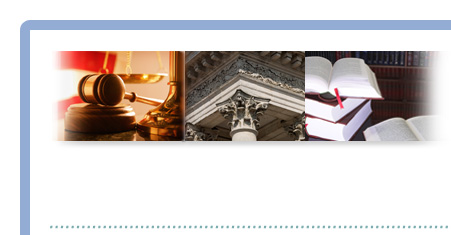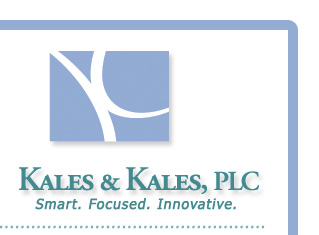Mediation / Collaborative Law In addition to our traditional family law services, Kales & Kales, PLC offers alternative dispute resolution, which includes both mediation and collaborative law. These options often help clients to avoid litigation completely, and may also save them time and money. Please contact us to see if alternative dispute resolution would be appropriate for your situation.
Mediation:
When Kales & Kales, PLC provides you with mediation services, we serve as a third-party neutral. In other words, we do not represent either the husband or the wife; we simply serve as a facilitator helping the parties reach their own agreement. Jonathan Kales has been certified by the Virginia Supreme Court as a family law mediator and has years of family law experience, making him acutely aware of the issues facing divorcing or divorced individuals.
Mediation clients do not pay a retainer fee. Rather, clients pay our standard
hourly rate due at the end of each mediation session. As every mediation is
different, it is very difficult to say how many hours and/or sessions of mediation
will be required for the parties to reach an agreement. The number and complexity
of the issues involved impact the number of hours required to mediate a settlement;
however a couple with children typically meets three to five times for two
to three hours per session and a couple without children typically meets for
two to three times for two to three hours per session. Please bear in mind
that these are estimates as to the time and cost. The parties truly guide
the mediation as well as its expense.
Parties are encouraged to seek legal advice from their own attorney and/or other financial professionals throughout the mediation.
Kales & Kales, PLC is ethically prohibited from representing either party in the divorce proceedings, whether or not an agreement is successfully mediated.
Collaborative Law:
Collaborative law encompasses aspects of both mediation and traditional litigation. In collaborative law, both parties are represented by counsel; however, the attorneys engage in open communication and information sharing to negotiate a mutually acceptable settlement without using court to decide any issues for the clients. If an agreement cannot be reached, counsel for both sides must withdraw as neither attorney is allowed to represent the parties in a contested divorce.
Collaborative law benefits clients as it allows them to maintain control of the divorce process without engaging in litigation. Moreover, the attorneys work to create an atmosphere of respect and full disclosure. When children are involved in a divorce, their needs are the highest priority in collaborative law cases.
As with our traditional litigation clients, collaborative law clients pay a retainer deposit based upon the issues and complexity of their case and are charged our standard hourly rate.
For more information about the collaborative law process, please visit www.collaborativepractice.com.
Kales & Kales, PLC serves clients throughout Northern Virginia. |
|

